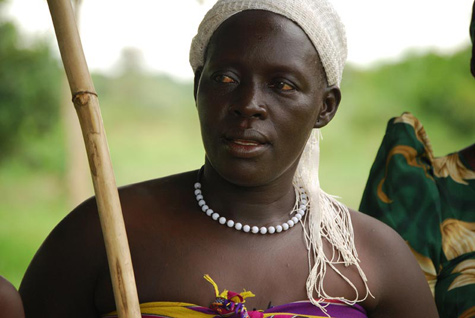
The Luo migration in Uganda brought about a lot of changes. In the first instance, the Luo migration marked the last major influx and settlement of Uganda. The migration led to the peopling and settlement of large parts of northern Uganda, West Nile and eastern Uganda.
It was due to the Luo migration that Uganda came to have such people as the Alur, the Acholi, the Japadhola and the Kumam. These people are said to have been the off springs of the intermarriages the local people and the Luo arrivals. During their migration in various parts of Uganda, the Luo introduced their culture, language and some animals and crops to areas where they settled. The Langi for example speak Lwo and the Kumam language has a high percentage of Luo words. Besides, Luo is an important medium of communication among the peoples of northern Uganda.
In Bunyoro, though they were assimilated, the Luo left a mark in the form of the pet names, empaako, which the Banyoro and the Batooro very much cherish. Although the Luo communities do not have the empaako, it is generally agreed that the concept of empaako is of Luo origin.
Some historians assert that the Luo introduced the idea of centralized states in Uganda. It is said that the Bito-Luo founded the Kingdom of Bunyoro Kitara and that Buganda was founded by Kato Kimera who was a twin brother of Isingoma Rukindi Mpuga, the Luo founder of the Babiito dynasty. It assertion is generally correct but it should not be carried beyond its limits to assert that the Luo introduced the idea of centralized states in Uganda. Indeed the Luo movement coincided with the period of state formation in Uganda but the actual idea may not necessarily have come with the Luo. After all the Batembuzi and the Bachwezi dynasty had existed long before the Luo.
What is clear is that the Luo founded the Babiito dynasty in Bunyoro-Kitara to replace the collapsing Bachwezi dynasty. One could say with ease, that the Luo has the effect of speeding up the collapse of the Bachwezi. But to assert that they came with the idea of state formation is grossly exaggerated because such an idea was not introduced in those areas where they settled predominantly such as Acholi apart from chiefdoms.
The Luo are also said to have founded the Baisengobi principalities in Busoga such as Bugabula, Buswikira, Bukasanga and Bukoli. Indeed the connection of these principalities with the Kingdom of Bunyoro- Kitara lends emphasis to the assertion. The Luo are also credited for having founded the Rwotodoms (chiefdoms) in Acholi, Langi and west Nile. These seem remarkable achievements but the Luo could have borrowed the idea of state formation from the Bantu of the interlacustrine region. In Bunyoro, they were bantuised, while in Acholi, Alur and Japadhola; they retained their Luo culture and customs.

 Posted in
Posted in 

